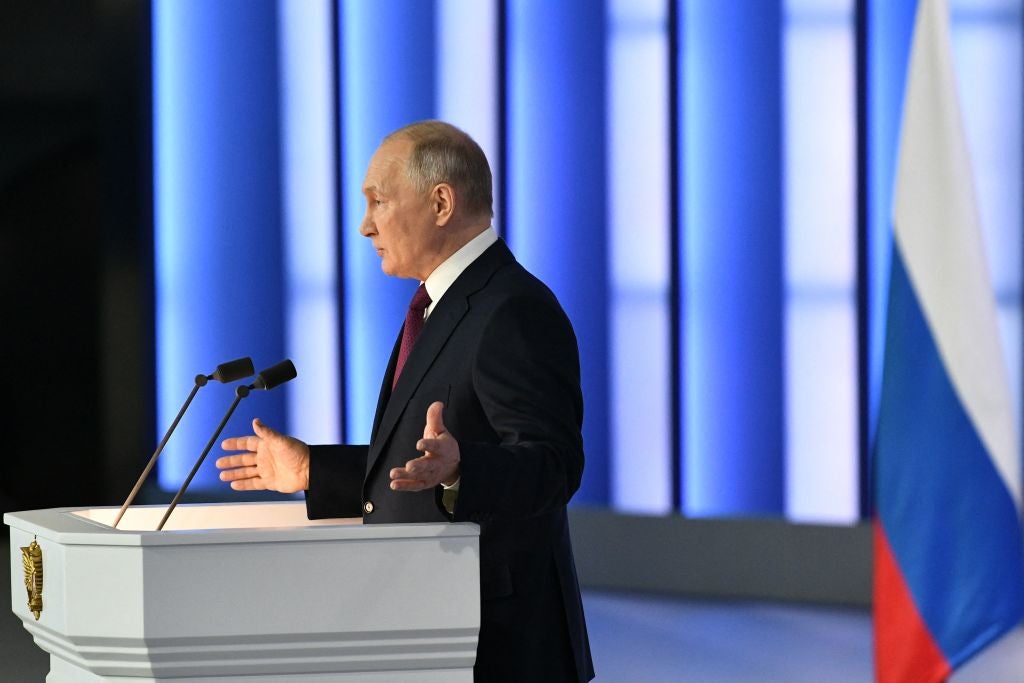New data from the Kyiv School of Economics has found that 1,717 (56%) of international companies that had ties to Russia at the start of 2022 continue to do
business with the country.
Of the companies that had a local Russian subsidiary at the start of the full-scale invasion of Ukraine, only one in ten has completed the liquidation or sale of its Russian business. The remaining companies paid at least $18bn in taxes to Russia in 2021 – enough to fund Russia’s war against Ukraine for two months.
“One year after the invasion and nine years since the beginning of Russia’s aggression, this is far too little progress,” said Eleanor Nichol, executive director of B4Ukraine, an international coalition of more than 80 civil society organisations. “While G7 governments have been supporting Ukraine, providing billions of pounds in support, almost 1,000 of their major companies have chosen to continue doing business with the regime – continuing to pay taxes, indirectly supporting this horrific war and undermining sanctions.”
When compared with the group’s contributions in aid, for every $7 G7 governments declare in bilateral aid to Ukraine, its companies may still be paying $1 in taxes to the Russian state. Companies in France, Germany, Italy and Japan have the poorest records when it comes to withdrawal. This has now long been the case, as shown by analysis from Investment Monitor. In mid-2022, we that found British, Canadian and US companies were leading the G7’s corporate exodus, while Italian, French, Japanese and German ones lagged far behind.
B4Ukraine has called on the G7, EU and Swiss governments to urge their businesses to cut ties with Russia and issue market guidance advisories to warn of the heightened risks of continuing business there.
“While the companies doing business with Russia are reporting on their increased profits in the past year, Ukrainians are recounting their losses: the millions of lives forever disrupted by over 70,000 Russian war crimes, tens of thousands of casualties among the Ukrainian civilians, including 461 children,” said Nataliya Popovych, member of the B4Ukraine Coalition. “[There have also been] more than 5,300 missiles and kamikaze drones targeting critical infrastructure, apartment blocks, schools and hospitals across Ukraine [which] were made possible in part by the taxes paid by multinationals in Russia.”
Despite high numbers of companies remaining, more than 1,000 companies have recognised the risks and begun the process of cutting ties with Russia. There have also been some consequential exits from the Russian market – such as Société Générale and FMC – serving as an example that a swift and orderly exit from Russia is possible.
Remaining companies must now also grapple with changes to domestic law requiring them to facilitate conscription for eligible employees and provide material support to the Russian military upon request, as well as threats of government expropriation of their assets.
“Companies are playing a potentially lethal game of corporate Russian roulette by wilfully accepting exposure to an array of regulatory, legal, reputational and financial risks by continuing to do business and utilise supply chains under military control in Russia,” said Rich Stazinski, member of the B4Ukraine coalition.
“As the invasion passes its tragic anniversary, CEOs are gambling with Ukrainian lives by ignoring mounting risks in pursuit of marginal profits. It is passed time for allied governments to issue business advisories on Russia and clearly convey these heightened material risks to their domiciled companies,” he added.
B4Ukraine has urged governments and their economic agencies to use all available powers not to support trade and investment activity with Russia, including withholding public money from companies that continue doing business with the country.



